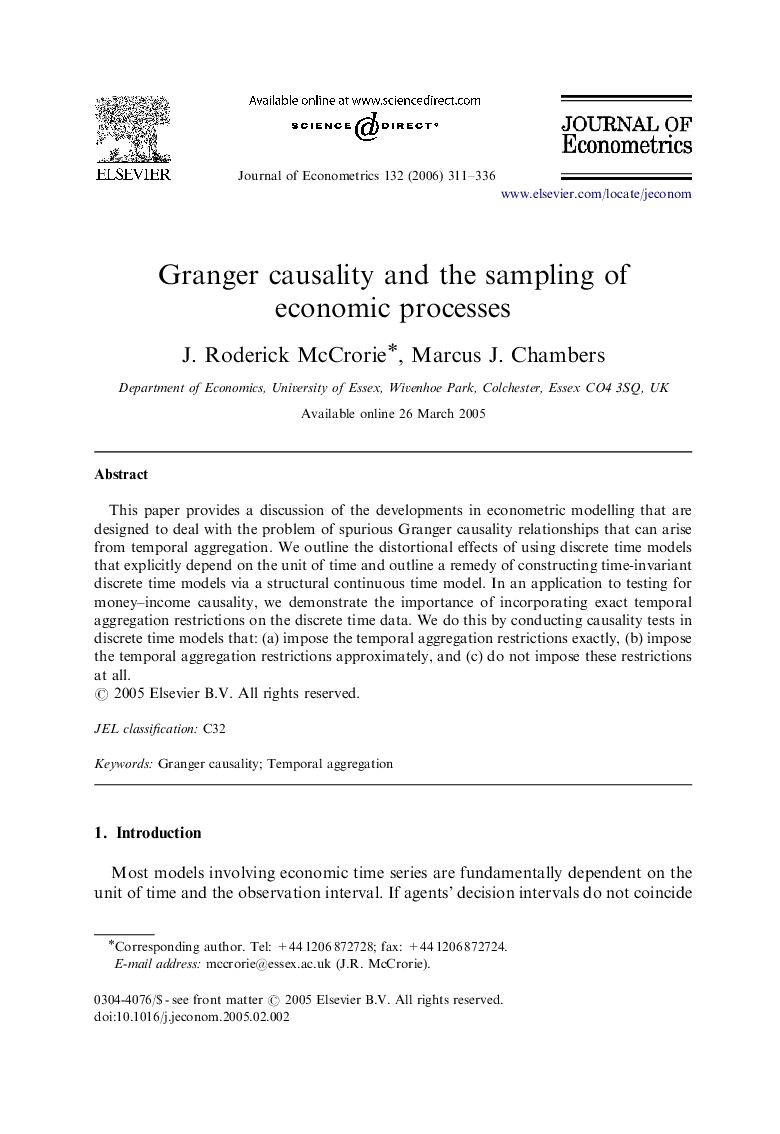| Article ID | Journal | Published Year | Pages | File Type |
|---|---|---|---|---|
| 5097637 | Journal of Econometrics | 2006 | 26 Pages |
Abstract
This paper provides a discussion of the developments in econometric modelling that are designed to deal with the problem of spurious Granger causality relationships that can arise from temporal aggregation. We outline the distortional effects of using discrete time models that explicitly depend on the unit of time and outline a remedy of constructing time-invariant discrete time models via a structural continuous time model. In an application to testing for money-income causality, we demonstrate the importance of incorporating exact temporal aggregation restrictions on the discrete time data. We do this by conducting causality tests in discrete time models that: (a) impose the temporal aggregation restrictions exactly, (b) impose the temporal aggregation restrictions approximately, and (c) do not impose these restrictions at all.
Related Topics
Physical Sciences and Engineering
Mathematics
Statistics and Probability
Authors
J. Roderick McCrorie, Marcus J. Chambers,
